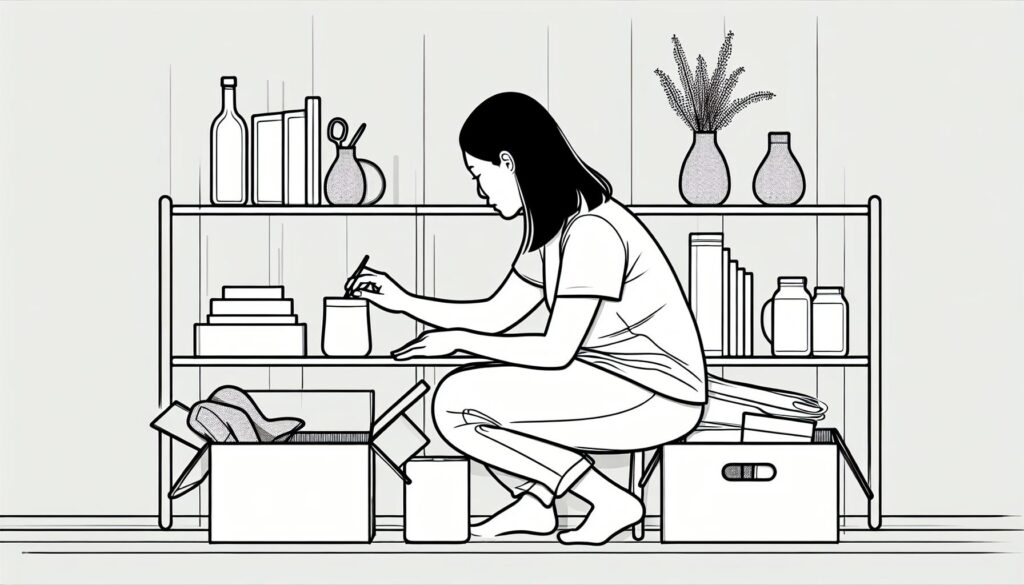As someone who has always been intrigued by the power of simplicity, I’ve delved into the fascinating relationship between minimalism and mental health. The idea that decluttering our physical space can declutter our minds is not just a trendy concept, but a profound truth backed by research and personal experiences.
In this article, I’ll explore how embracing minimalism can lead to reduced stress, increased focus, and a greater sense of clarity in our daily lives. By stripping away the excess and focusing on what truly matters, we can create a sanctuary for our minds to thrive and find peace in a chaotic world. Join me on this journey to uncover the transformative impact of minimalism on our mental well-being.
The Benefits of Minimalism on Mental Health
Embracing minimalism can have profound effects on mental health by creating a sense of calm and clarity in our lives. Here are some key benefits:
- Reduced Stress
- Increased Focus
- Greater Sense of Clarity
By decluttering our physical space, we free our minds from distractions and unnecessary items that can cause anxiety and overwhelm. Minimalism encourages us to prioritize what truly matters, leading to a more peaceful and balanced state of mind.
- Enhanced Well-being
- Improved Decision-making
- Boosted Creativity
When we let go of excess possessions and commitments, we make room for positive energy to flow and enable self-reflection. This process of simplifying our surroundings can pave the way for a happier and more fulfilling life.
Decluttering Your Physical Space to Declutter Your Mind
When decluttering your physical space, you’re not just organizing your belongings; you’re also clearing your mind. I find that a tidy and organized environment helps me think more clearly and feel more at ease. Less clutter means less distractions and chaos, allowing me to focus on what truly matters.
By streamlining your surroundings and getting rid of unnecessary items, you create a sense of calm and simplicity in your living space. I’ve experienced firsthand how removing clutter can lead to a greater feeling of peace and contentment. It’s amazing how liberating it can be to let go of things you no longer need or cherish.
When your physical space is tidy and uncluttered, it can have a profound impact on your mental well-being. I’ve noticed that I feel less stressed and more relaxed in a clean and organized environment. It’s almost like a weight has been lifted off my shoulders, allowing me to breathe easier and think more clearly.
Cultivating a Sense of Peace and Clarity Through Minimalism
Embracing minimalism has transformed my life in ways I never imagined. By simplifying my surroundings and embracing a minimalist lifestyle, I’ve unlocked a profound sense of peace and clarity.
Minimalism isn’t just about decluttering physical spaces; it’s a mindset that extends to all aspects of life. When I prioritize quality over quantity and focus on what truly brings me value, I feel a deep sense of contentment and tranquility.
Through intentional living and letting go of excess, I’ve created an environment that nurtures my well-being. Every item in my space serves a purpose and brings me joy, contributing to a sense of calm and order that permeates every aspect of my day.
Simplicity has become my guiding principle, allowing me to shed the unnecessary and focus on what matters most. With minimalism, I’ve learned to appreciate the beauty of fewer distractions and the clarity that comes with a streamlined lifestyle.
Minimalism has been the key to unlocking a clearer mind and a lighter emotional load. It’s not just about the external environment but also about cultivating a sense of inner peace that radiates through every decision I make.
Enhancing Mental Focus and Productivity with Minimalist Practices
Being intentional about simplifying my surroundings has had a profound impact on my mental focus and productivity. Minimalist practices have helped me cut through the noise of distractions and hone in on what truly matters, allowing me to allocate my time and energy more efficiently towards my goals.
Clutter-free spaces create an environment conducive to clear thinking and improved concentration. By eliminating unnecessary items and reducing visual chaos, I’ve found that my mind is less cluttered as well. This clarity translates into increased productivity as I can devote my full attention to the task at hand without feeling overwhelmed by a cluttered space.
Incorporating minimalist routines has also played a significant role in enhancing my mental focus. Establishing streamlined processes and rituals has helped me maintain a sense of order and structure in my daily life. This predictability not only reduces decision fatigue but also frees up mental space for creative and strategic thinking.
Moreover, embracing a less-is-more mindset when it comes to work commitments has been instrumental in boosting my productivity levels. By prioritizing tasks based on their importance and relevance, I can allocate my time more effectively and avoid spreading myself too thin. This targeted approach not only enhances my focus but also ensures that I deliver high-quality results in a timely manner.
In essence, by integrating minimalist practices into my daily routine, I’ve been able to unlock a higher level of mental clarity and efficiency that has transformed the way I approach work and productivity.
Embracing Minimalism for a Healthier Mind and Lifestyle
Minimalism isn’t just about decluttering physical spaces; it also extends to decluttering your mind. By eliminating excess stuff, commitments, and noise, I’ve noticed a significant improvement in my mental health. Studies show that a cluttered environment can lead to increased stress levels and anxiety. Embracing minimalism has allowed me to create a calm and peaceful sanctuary within my living space.
Practicing minimalism has helped me focus on what truly matters in life. Instead of being overwhelmed by possessions and obligations, I now prioritize experiences and relationships that bring me joy and fulfillment. This shift in mindset has had a profound impact on my overall well-being. Research indicates that minimalism can lead to reduced levels of depression and improved cognitive function.
Simplifying my life through minimalism has allowed me to cultivate healthier habits and routines. By streamlining my daily tasks and commitments, I’ve reduced decision fatigue and boosted my productivity. With a clearer mind and improved focus, I’ve been able to dedicate more time to self-care practices such as meditation and exercise, further enhancing my mental health.
Incorporating minimalist principles into my lifestyle has not only transformed my physical surroundings but has also had a positive ripple effect on my mental health. Embracing minimalism has empowered me to let go of perfectionism, embrace imperfection, and prioritize self-care. By fostering a minimalist mindset, I’ve cultivated a healthier and more balanced life that prioritizes mental well-being.
Key Takeaways
- Embracing minimalism can lead to reduced stress, increased focus, and a greater sense of clarity in daily life.
- By decluttering physical space, we free our minds from distractions and prioritize what truly matters, promoting a peaceful state of mind.
- Minimalism can enhance well-being, improve decision-making, and boost creativity by allowing positive energy to flow through simplifying surroundings.
- Decluttering physical space not only organizes belongings but also clears the mind, leading to clearer thinking and a more relaxed environment.
- Minimalism cultivates a sense of peace and clarity, extending beyond physical spaces to all aspects of life, fostering contentment, tranquility, and intentional living.
- Minimalist practices enhance mental focus and productivity by reducing distractions, improving concentration, and streamlining routines to allocate time efficiently towards goals.
Conclusion
Embracing minimalism has been a transformative journey for me, enhancing my mental well-being in profound ways. By simplifying my life and focusing on what truly matters, I’ve experienced a significant reduction in stress and anxiety. Prioritizing experiences and relationships over material possessions has not only decluttered my physical space but also decluttered my mind, leading to improved cognitive function. Minimalism has empowered me to establish healthier habits, reduce decision fatigue, and increase productivity. By embracing minimalist principles, I’ve cultivated a lifestyle that prioritizes self-care and mental well-being, ultimately fostering a healthier and more balanced existence.



